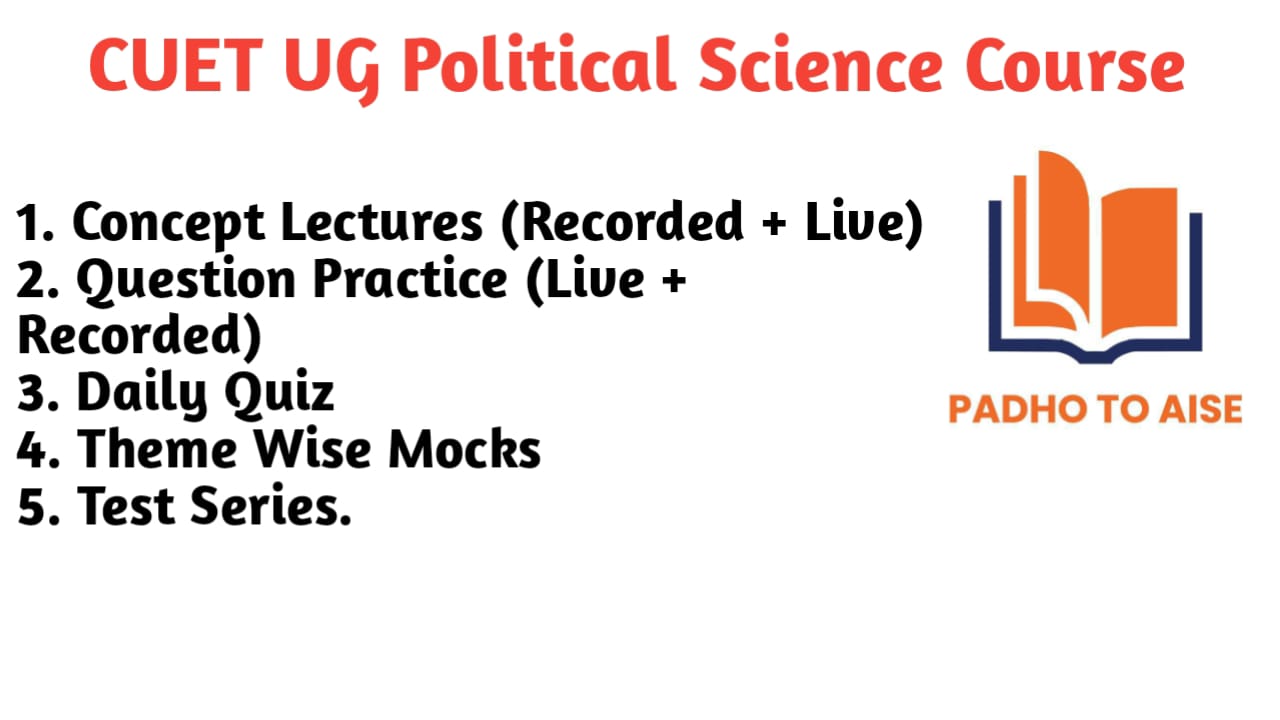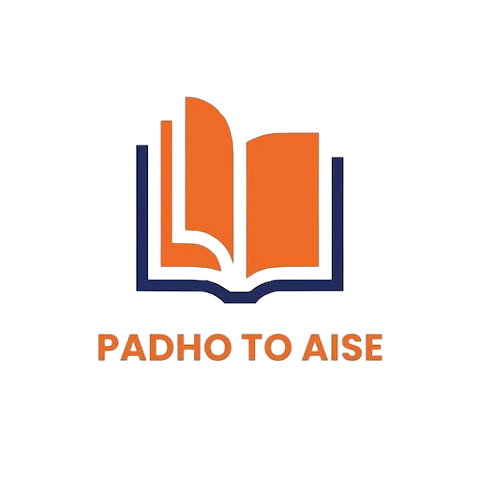CUET UG Political Science Course
Validity : 12 Months
Description
The Common University Entrance Test (CUET) UG Political Science exam is a national-level test conducted for undergraduate admissions into Political Science programs offered by Central and participating universities across India. This exam provides a common platform for students aspiring to pursue higher education in political science, ensuring a standardized evaluation process. Political Science as a subject explores the intricacies of political systems, governance, national and international political developments, and the changing dynamics of global affairs.
The CUET UG Political Science syllabus for 2025 is designed to align with the Class 12 curriculum, ensuring that students are evaluated based on the knowledge and understanding they have gained during their school education. The syllabus is divided into two sections: Politics in India Since Independence and Contemporary World Politics. Together, these sections cover the key political events, movements, ideologies, and changes that have shaped India and the world.
Exam Format:
- Paper Code: 323
- There will be 50 questions, and candidates are required to attempt 40 questions.
Political Science – 323
Politics in India Since Independence
-
The Era of One-Party Dominance
- First three general elections, nature of Congress dominance at the national level, uneven dominance at the state level, coalitional nature of Congress, and major opposition parties.
-
Nation-Building and Its Problems
- Nehru’s approach to nation-building, legacy of partition, the challenge of refugee resettlement, the Kashmir problem, and political conflicts over language.
-
Politics of Planned Development
- Five-year plans, expansion of the state sector, the rise of new economic interests, famine, suspension of five-year plans, and the Green Revolution.
-
India’s External Relations
- Nehru’s foreign policy, Sino-Indian war (1962), Indo-Pak wars (1965 and 1971), India’s nuclear program, and alliances in world politics.
-
Challenge to and Restoration of Congress System
- Political succession after Nehru, non-Congressism, electoral upsets of 1967, Congress split, reconstitution, and 1971 elections.
-
Crisis of the Constitutional Order
- Search for committed bureaucracy and judiciary, Gujarat and Bihar movements, Emergency (context, constitutional and extra-constitutional dimensions), and the rise of civil liberties organizations.
-
Regional Aspirations and Conflicts
- Rise of regional parties, Punjab crisis, anti-Sikh riots (1984), Kashmir situation, and challenges in the Northeast.
-
Rise of New Social Movements
- Farmers’ movements, women’s movements, environmental and development-affected people’s movements, Mandal Commission report, and its aftermath.
-
Democratic Upsurge and Coalition Politics
- Rise of JD and BJP, regional parties, coalition politics, UF and NDA governments, and elections of 2004 and UPA government.
-
Recent Issues and Challenges
- Globalization, OBC politics in North India, Dalit politics, communalism, Ayodhya dispute, and Gujarat riots.
Contemporary World Politics
-
Cold War Era in World Politics
- Emergence of two power blocs post-World War II, arenas of the Cold War, Non-Aligned Movement, and India’s role.
-
Disintegration of the ‘Second World’ and Collapse of Bipolarity
- Formation of new entities (Russia, Balkan states, Central Asian states), democratic politics, capitalism in post-communist regimes, and India’s relations with Russia and other post-communist countries.
-
US Dominance in World Politics
- Growth of unilateralism (Afghanistan, Gulf War, 9/11, Iraq), challenges to US dominance, and India’s renegotiated relations with the USA.
-
Alternative Centres of Economic and Political Power
- Rise of China, European Union expansion, ASEAN growth, and India-China relations.
-
South Asia in the Post-Cold War Era
- Democratization in Pakistan and Nepal, ethnic conflict in Sri Lanka, impact of globalization, and India’s relations with neighbors.
-
International Organizations in a Unipolar World
- Restructuring of the UN, India’s position, rise of new international actors, NGOs, and global governance accountability.
-
Security in Contemporary World
- Traditional security concerns, disarmament, human security issues (poverty, health, education), human rights, and migration.
-
Environment and Natural Resources in Global Politics
- Global environmental norms, conflicts over resources, rights of Indigenous people, and India’s role in global environmental debates.
-
Globalization and Its Critics
- Economic, cultural, political manifestations, debates on globalization, anti-globalization movements, and India’s role.


